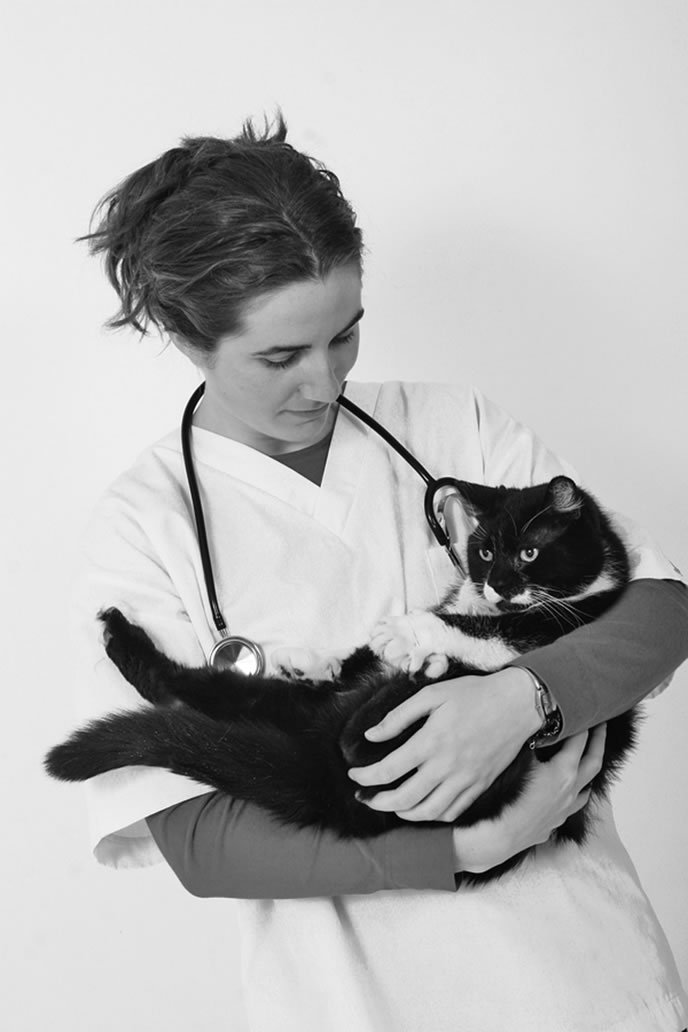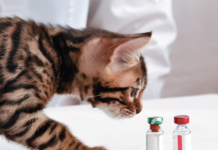If your cat had a life-threatening disease with no effective treatment, would you enter him in a clinical trial that might result in a helpful drug or other therapy — perhaps even a cure? Clinical studies are essential in moving medicine forward and often rely on the participation of animals with naturally occurring diseases to find answers.
But before you sign up your cat for a trial, it’s important to do your homework on its goals and how it will be conducted. Not every study is a good fit for pets, and not every cat is right for all studies.
Multiple Exams. “There are often many visits in a clinical trial, and the temperament of the cat is very important to ensure he or she can handle the stress of multiple appointments,” says nutritionist Joseph J. Wakshlag, DVM, Ph.D., Associate Chair of Research and Graduate Education at Cornell University College of Veterinary Medicine.
Mike Connell

The best drug studies are double-blind and placebo controlled. That means that one group of cats receives the drug being tested while the other group receives a placebo, a substance with no therapeutic effect. Neither the owners nor the researchers know which cats are getting drug or the placebo. That’s what makes the study double blind. It helps to prevent bias in the results.
While this kind of study provides the most reliable results, it can be a concern for owners and an ethical dilemma for veterinarians. “That’s part of the reason a lot of us have qualms about clinical studies,” Dr. Wakshlag says. “I typically want to treat my patient, not withhold treatment.” However, most placebo-controlled trials give the placebo for predetermined period of time and then enroll the animal in the drug portion afterward, so it can be a win-win situation if designed correctly.
Some studies may offer “standard of care,” the normal treatment for the condition, versus the new treatment. That’s one way of determining if New Drug X enhances the standard of care treatment. You might have your cat participate in a clinical trial if he has a type of cancer or other disease with few effective treatment options. For instance, some diseases, such as kidney failure, don’t have a standard of care because other than diet, no other treatment is known to help increase longevity in cats.
Variety of Sponsors. Universities, manufacturers, large referral hospitals and contract research laboratories perform clinical trials. One factor in the number of clinical studies that a university performs is the size of its surrounding population, which can limit the pets available to participate.
Scientists must reach out to veterinarians and to the community at large to find animals with the diseases in question and owners willing to have them try new products and treatments. “We at Cornell don’t do as many clinical studies as a lot of other places because here we have a population base of only 50,000,” Dr. Wakshlag says.
However, Cornell researchers are performing several studies that could one day benefit cats. One is collecting physiological data on healthy cats to act as controls for scientists studying common feline disorders. The information will help researchers develop better diagnostic methods such as genetic tests, as well as treatments and new drugs.
Researchers may have very specific requirements to ensure the validity of their study. One, of course, is usually that the cat must have the disease in question unless researchers need healthy cats for studies in which they might be looking at populations at risk. Some cats may be excluded from a clinical trial if they are taking other drugs or eating a certain diet.
“There are a lot of what we’ll call exclusion criteria that have to be ruled out before an animal is enrolled,” Dr. Wakshlag says. “You don’t want other factors complicating the study.” Exclusion criteria might include being a certain weight, breed and age — either too old or too young.
Cornell

Regular Checkups. Owners who participate must be willing to devote time to the study, administering medications, taking their cat for checkups, whatever the protocol outlines.
“Clinical trials have brought about improved survival of animals for many conditions, often with the bonus of improving treatments for people,” Dr. Wakshlag says. “If you find the right clinical trial for your cat’s problem, you could contribute to a better future for him, other cats and humans, too.”
Cornell recently completed a hyperthyroidism and diet study that had good success in controlling the disease for a number of cats, Dr. Wakshlag says. “This led us to better define the options for cats with this disease with an effective long-term outcome. This has become a great option for those who cannot afford radiation treatment and cannot pill their cat on a daily basis. It’s as simple as an iodine-depleted diet to help return thyroid hormone levels back down to the normal ranges.” ❖



